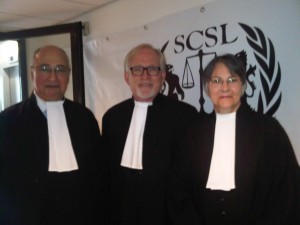By Brian Lanciault
Impunity Watch Reporter, Asia
NEW DELHI, India– An early-morning attack on the Indian side of the disputed Kashmir region reportedly killed 12 people, including three teenage militants. This occurred just days before the Indian and Pakistani leaders were scheduled to meet in New York.
The attack seemed to follow a long-established pattern of extremist attempts to derail any steps toward reconciliation between the wary neighboring countries, reports said.
A relatively minor group, identified as the Shohada Brigade, claimed responsibility for the attack. The group first surfaced in September when a threat was issued under its name against a classical-music concert, featuring conductor Zubin Mehta, in Indian-controlled Kashmir.
Thursday’s attack started around 6:45 a.m. local time when three militants dressed in military garb arrived in a motorized rickshaw at the Hira Nagar police station, located in India’s northern Jammu and Kashmir state a few miles from the de facto border with Pakistan. Police said the gunmen were between 16 and 19 years old. Taking officers by surprise during a shift change, the three stormed the station with grenades and automatic weapons, reportedly killing four policemen and a civilian.
Reports said the militants commandeered a truck, killing an assistant and forcing the driver to accompany them along a main highway to Samba, in the adjoining district. There they engaged in a firefight with Indian troops outside an army camp before infiltrating the camp’s perimeter.
In a battle lasting much of the day, the insurgents killed an officer and two more soldiers before they were killed.
Omar Abdullah, Jammu and Kashmir’s chief minister, said it would be a disgrace if planned talks between Indian Prime Minister Manmohan Singh and Pakistani Prime Minister Nawaz Sharif were cancelled because of this attack.
“It would be grave injustice to those who have been killed,” he told reporters, adding that he believed the attackers had crossed over from Pakistan-controlled territory.
Both leaders seem to want better relations, analysts said, but face significant political constraints. Sharif has longstanding links to hard-line clerics, including those close to the Jamaat-ud-Dawa Islamist group opposing closer ties, while Singh’s ruling Congress Party is vulnerable to opposition accusations that it’s weak and ineffective.
“Personally, Sharif is in favor of peace, but I don’t know that he will make that his political agenda,” said Radha Kumar, director-general of the Delhi Policy Group think tank. “And India wants peace, but I am appalled by the levels of immaturity the opposition shows when it comes to peace talks with Pakistan.”
India is already in election mode with next years upcoming elections, and within hours of the attack the opposition party attacked the government for even considering a meeting with Pakistan’s prime minister.
Talks and terrorism aren’t compatible, it said, blaming elements close to Pakistan’s powerful military for the attack. “What is the point of taking to a [Pakistani prime minister] who has no control over his army?” said opposition lawmaker Yashwant Sinha.
Though no significant breakthrough was expected upcoming meeting, that it was even taking place sent a positive signal to both countries. Cancelling it reverses hope of any progress in the near future. Two of three wars fought between the two countries since their independence in 1947 have been over Muslim-majority Kashmir.
India, which has battled a separatist insurgency in its part of Kashmir since 1989, has repeatedly accused Pakistan’s military of supporting militants fighting Indian rule.
“The army, [intelligence agencies] and political leadership are on the same page,” supporting better India-Pakistani relations, said Mehmood Shah, a Peshawar-based analyst and former army officer. “Whoever did this attack is no friend of India’s and no friend of Pakistan’s.”
Other recent militant attacks in the region include the killing of eight soldiers at Hyderpora in June and a March suicide strike at a paramilitary camp in Srinigar which resulted in the deaths of five paramilitary personnel and three insurgents.
“We have equally emotional publics on both sides,” Shah said. “But the political leaders must try and keep things in check. We’ve seen many incidents like this before.”
For more information, please see:
CNN– Militant attack in Indian-controlled Kashmir kills 9 — 26 September 2013
LA Times– Ahead of India-Pakistan talks, 12 die in militant attack in Kashmir — 26 September 2013
The Hindu– 12 killed in fidayeen strikes in Jammu — 26 September 2013
Hindustan Times– Twin terror strike in Jammu kills 10, PM says talks still on — 26 September 2013


